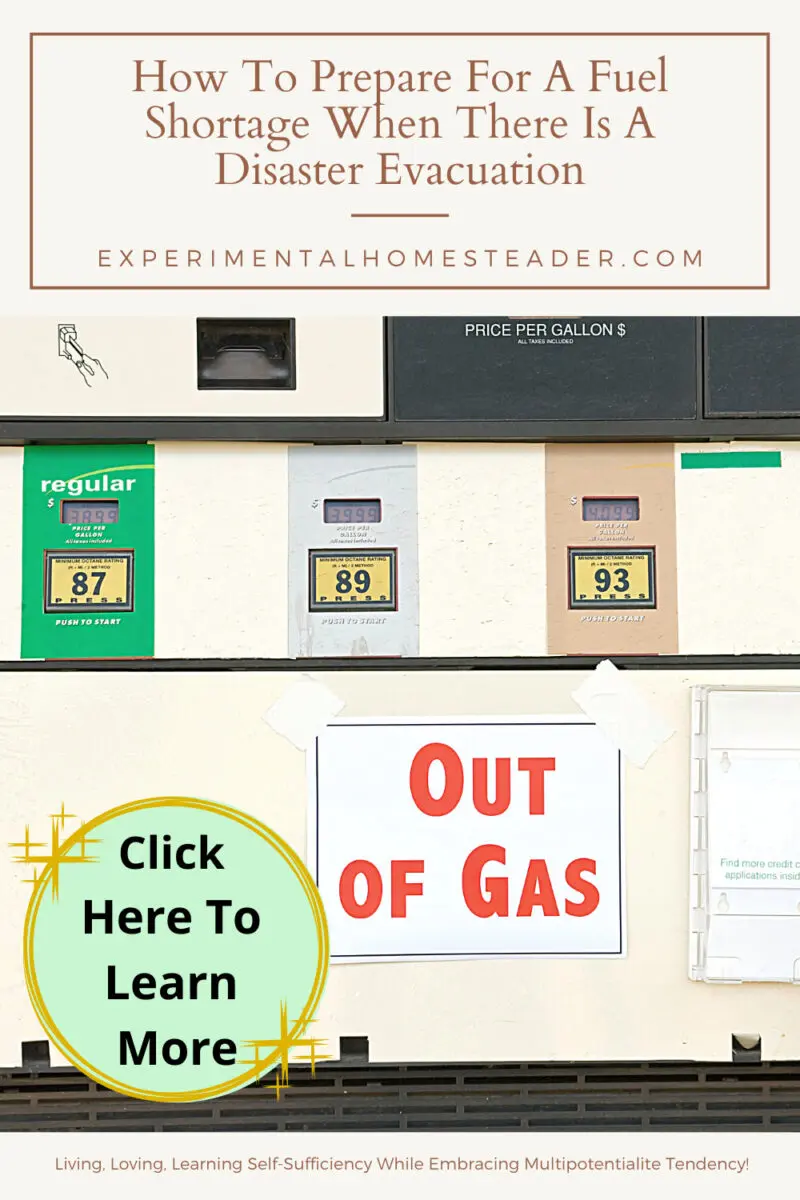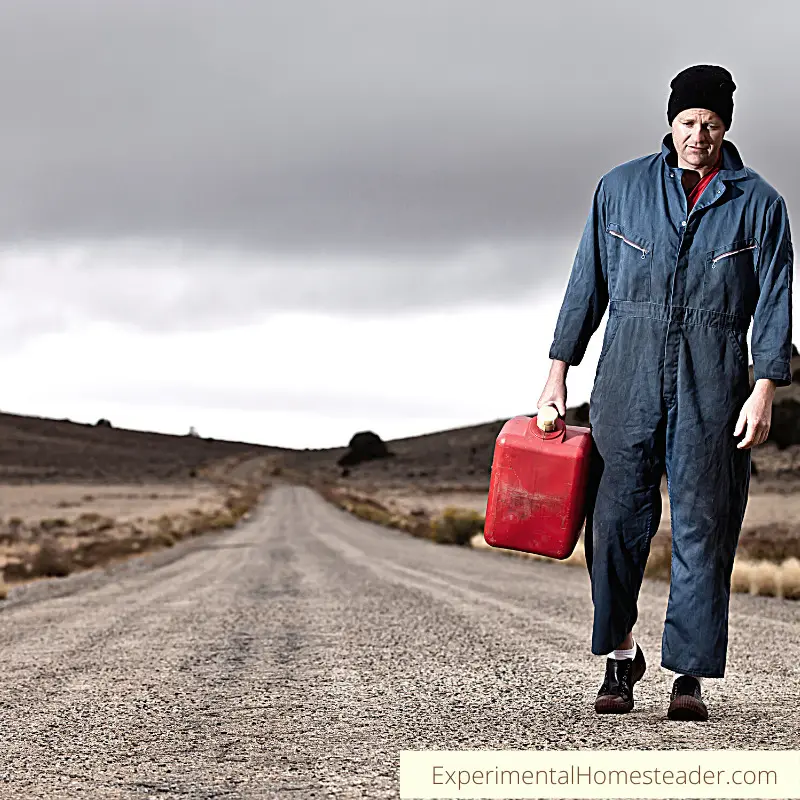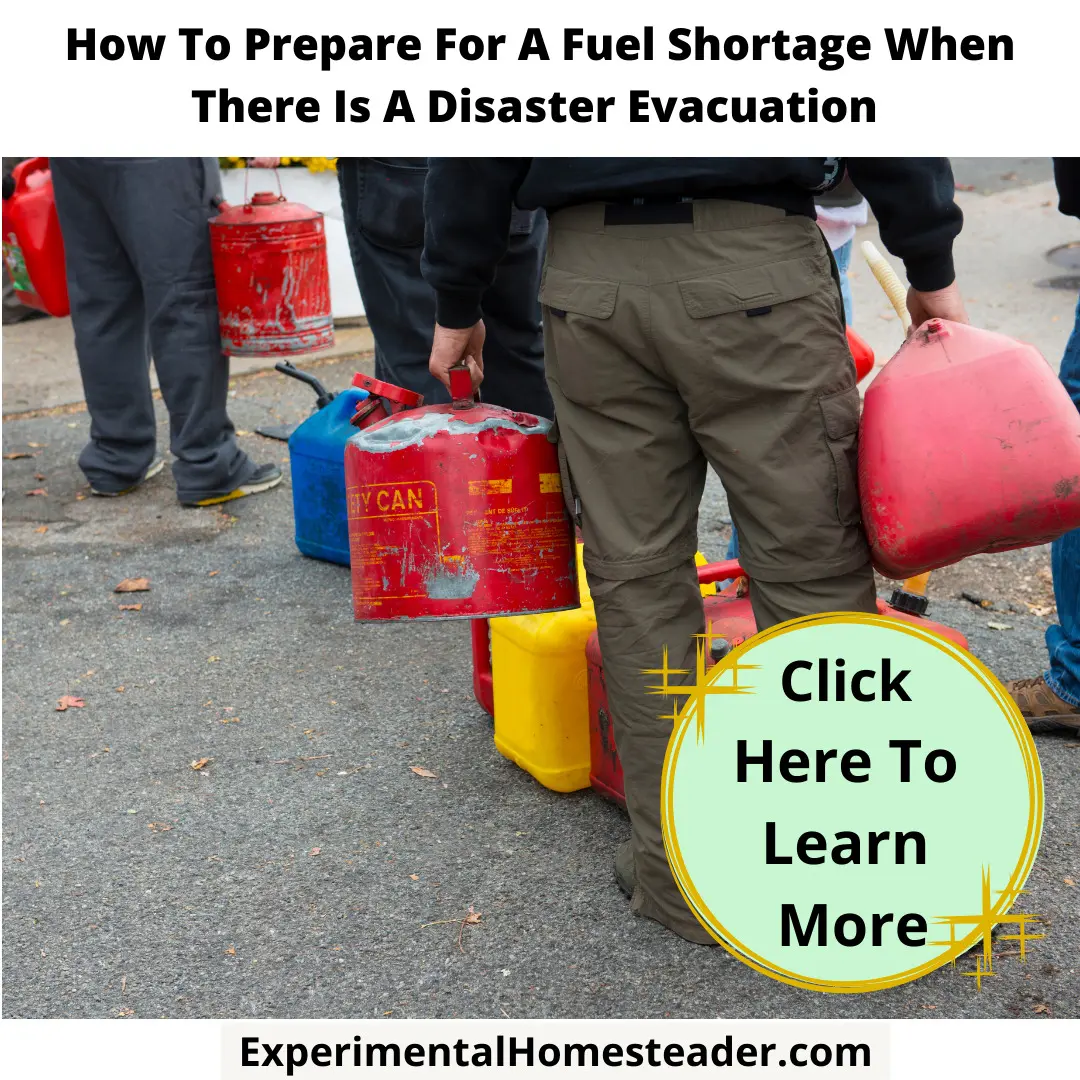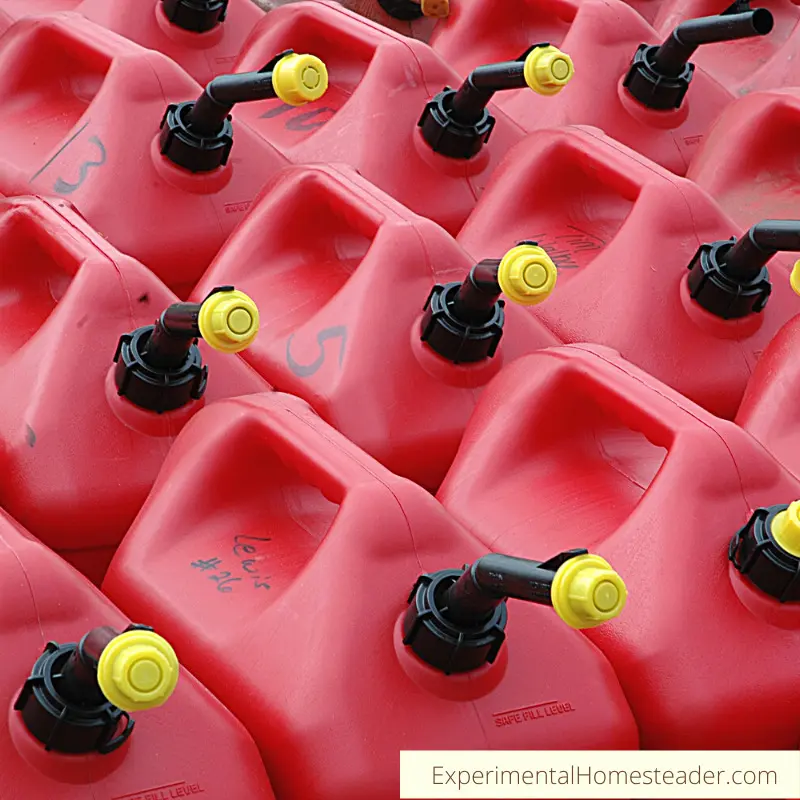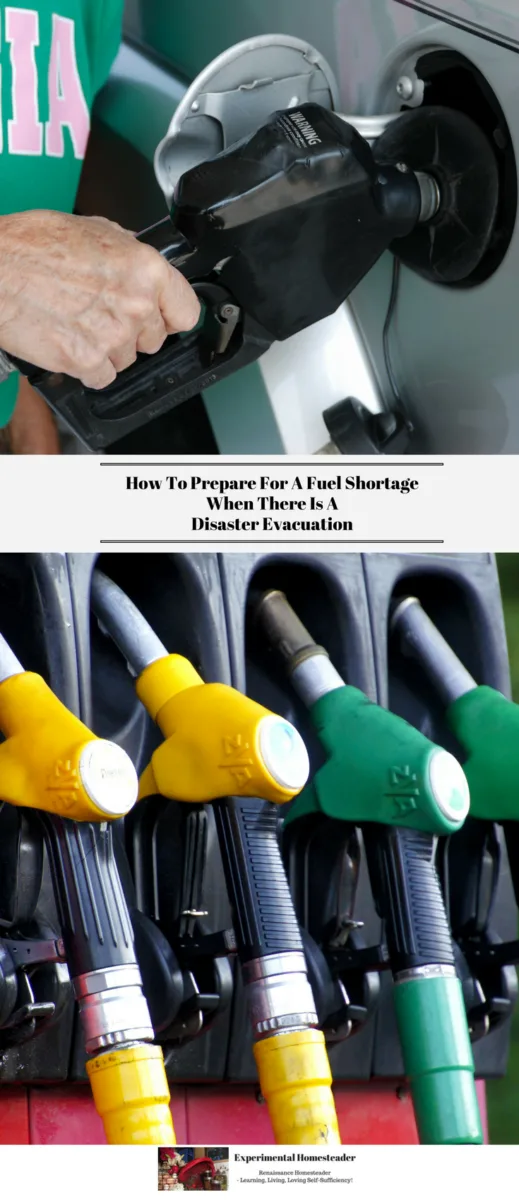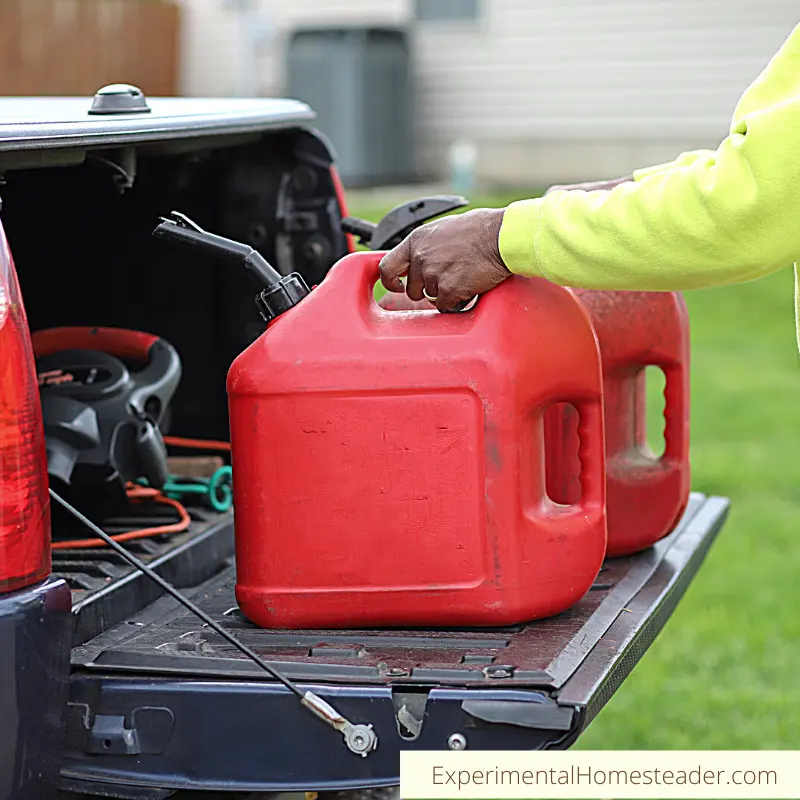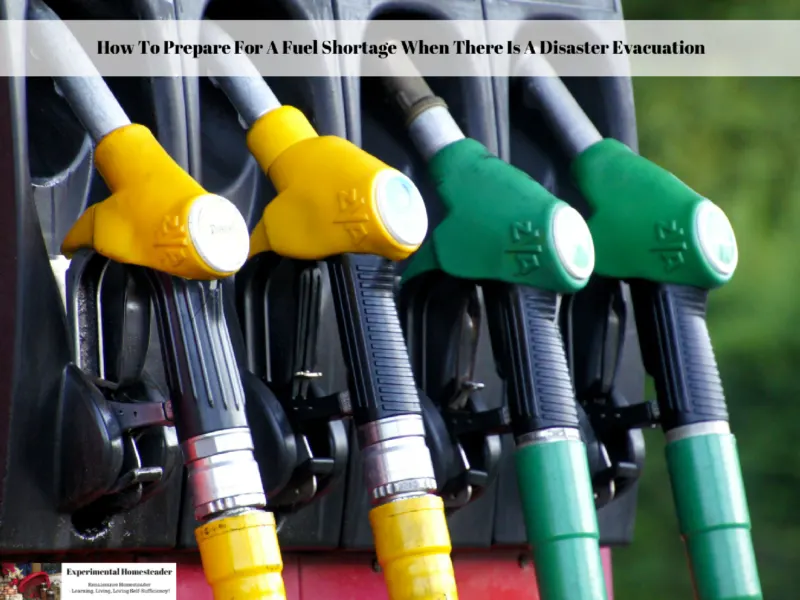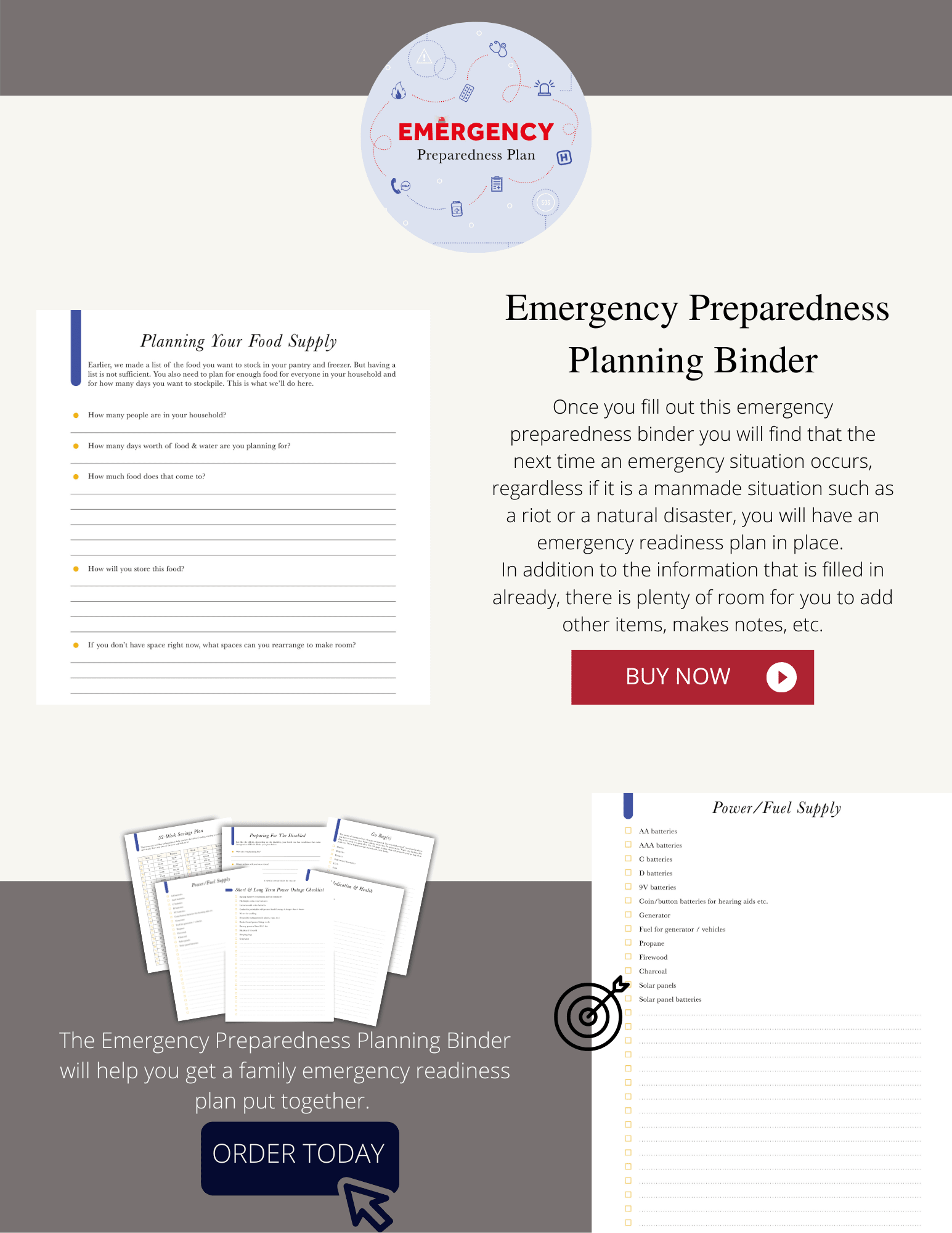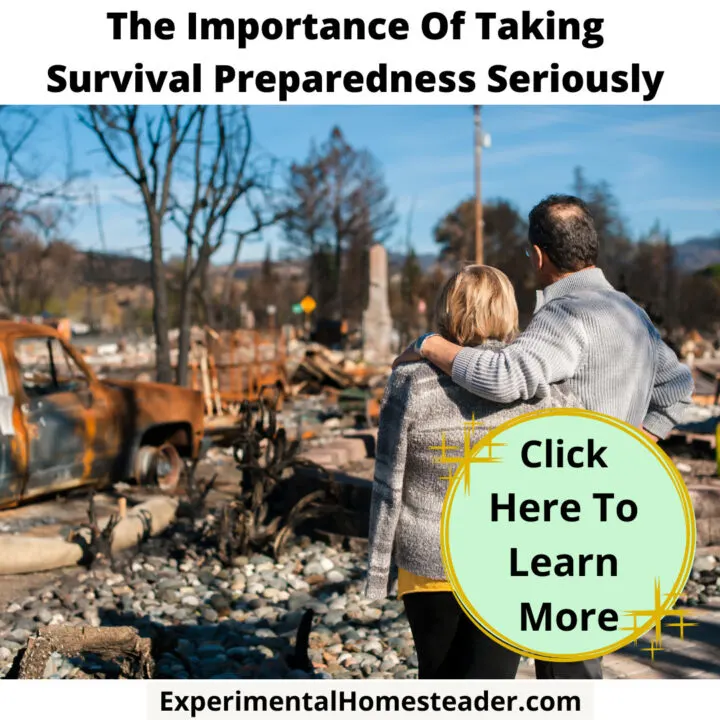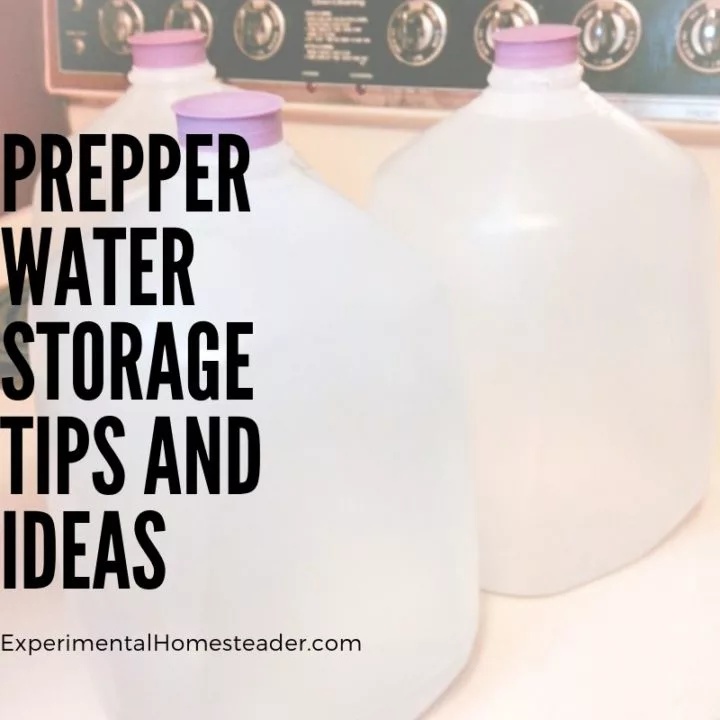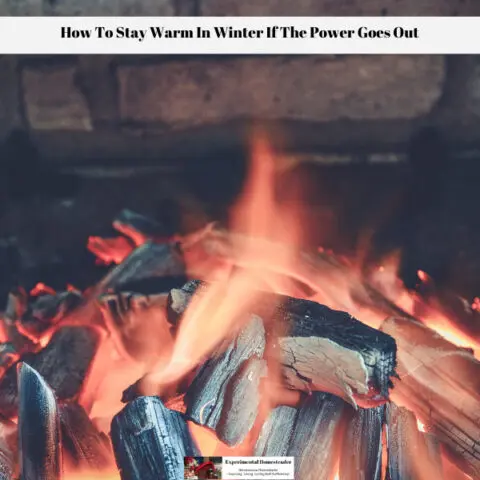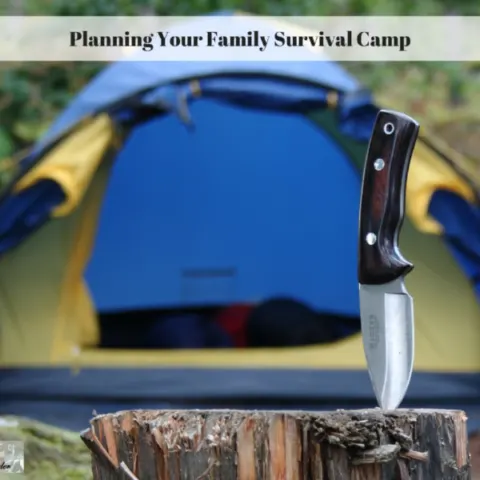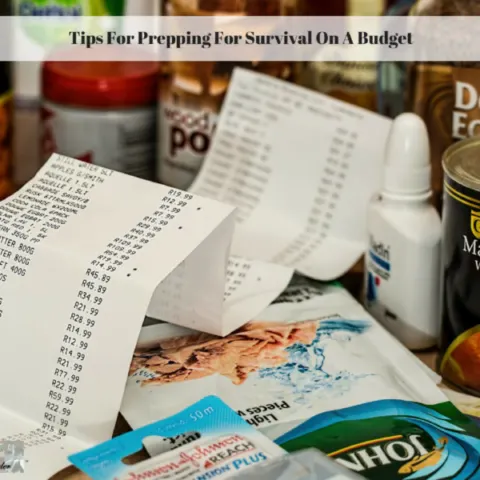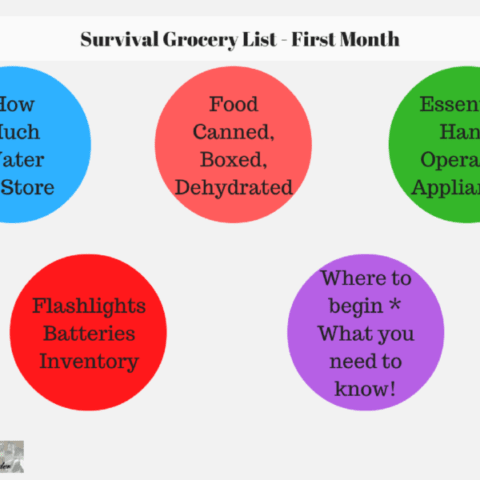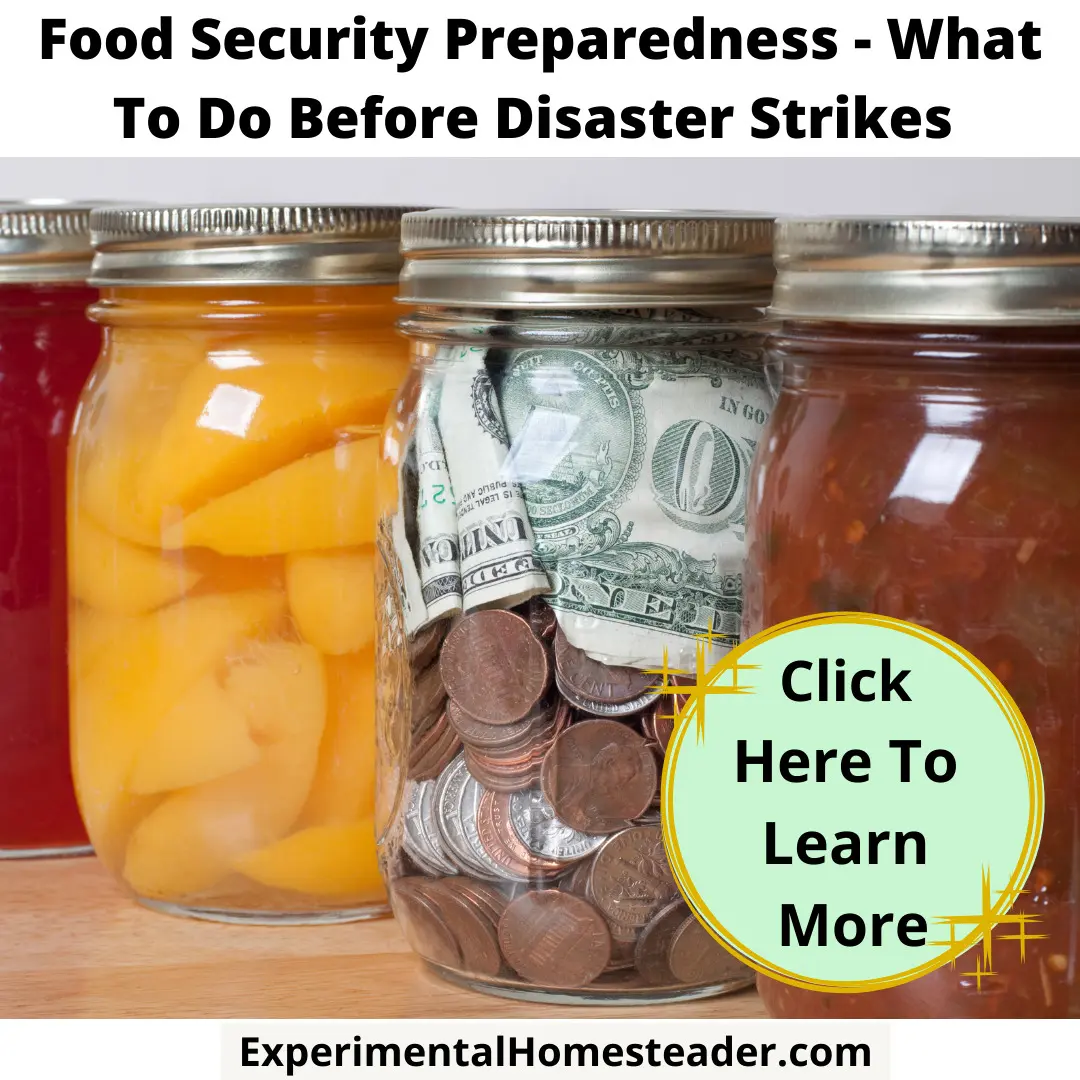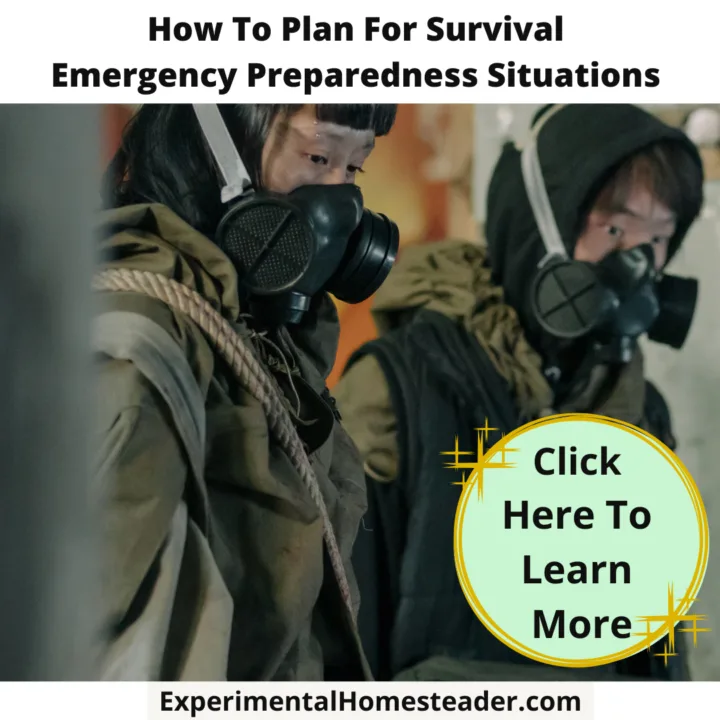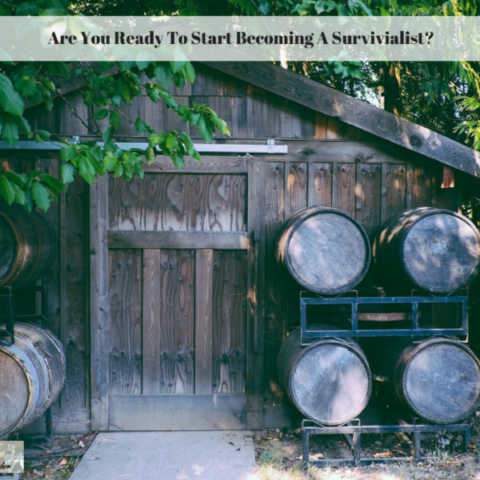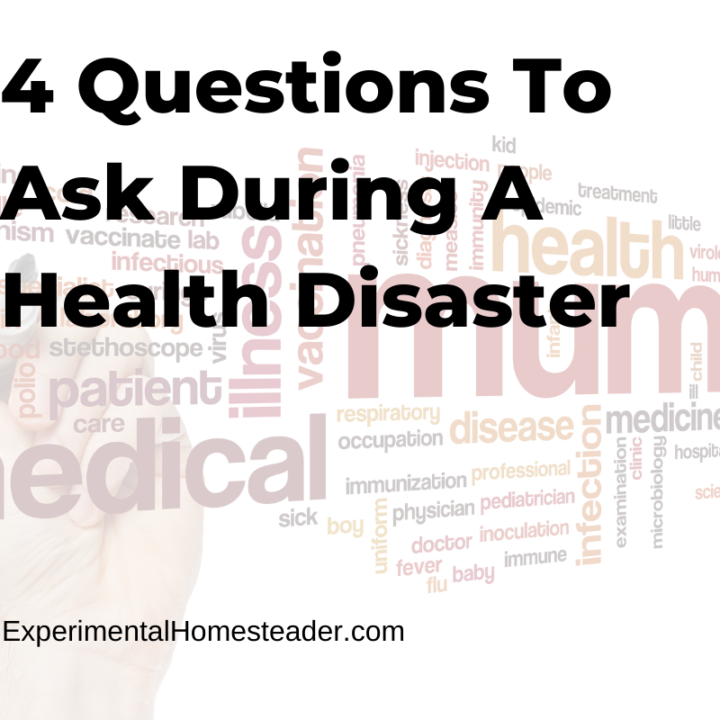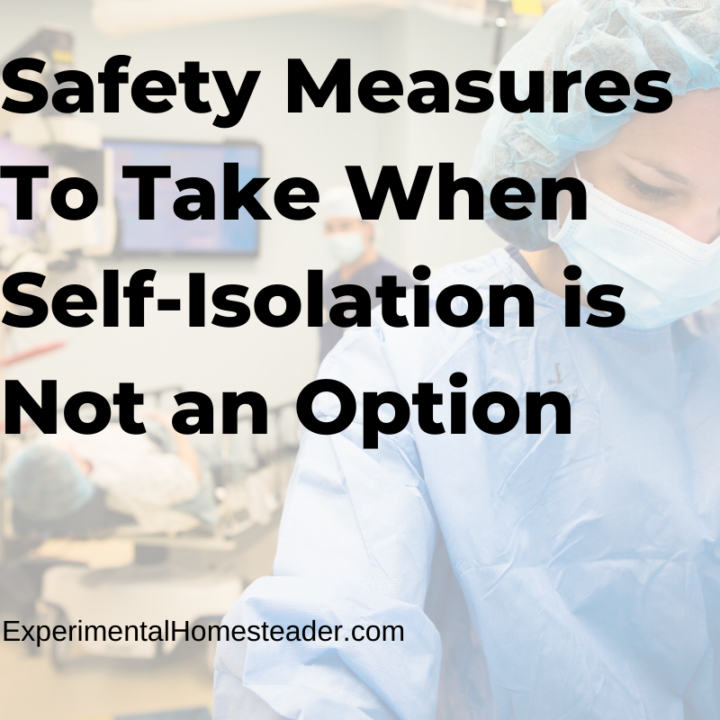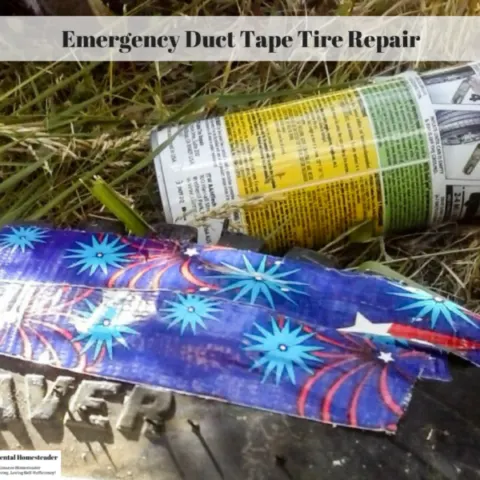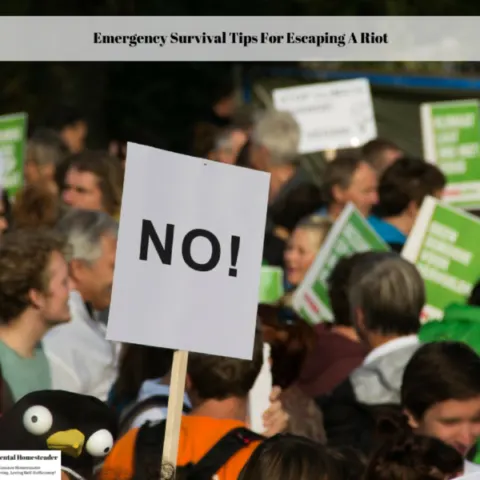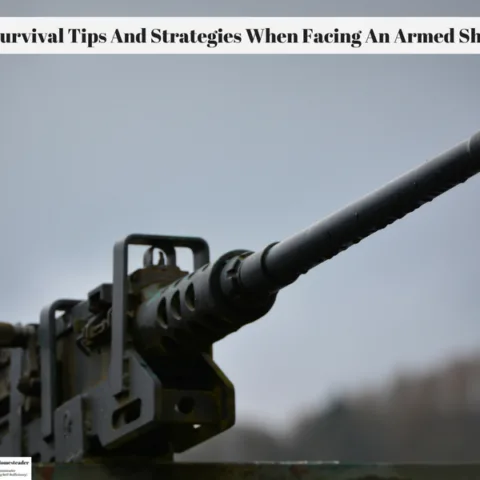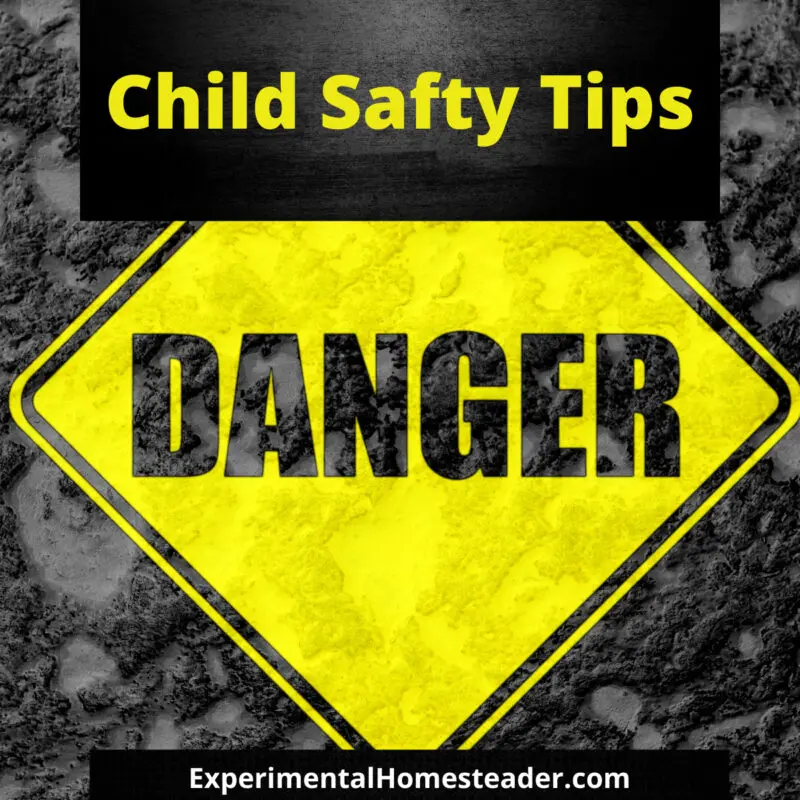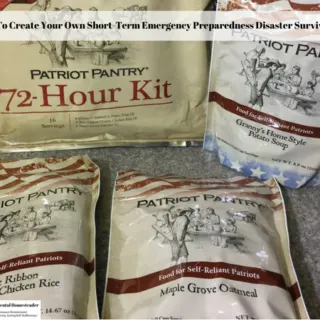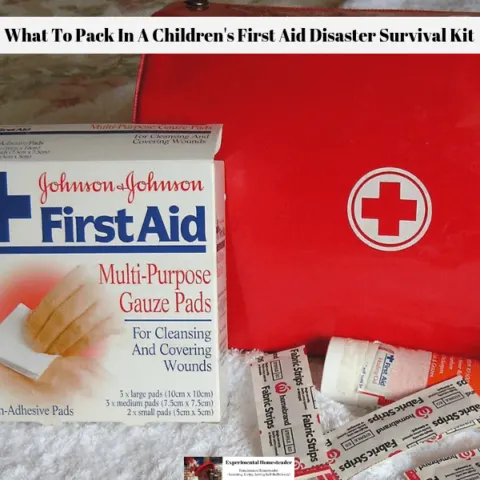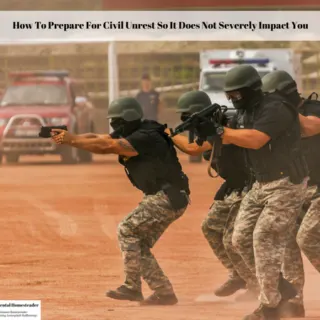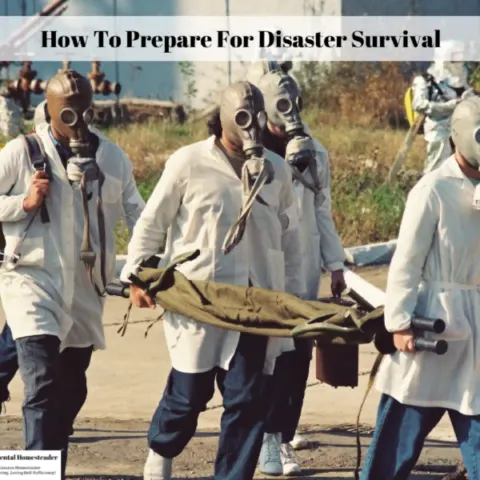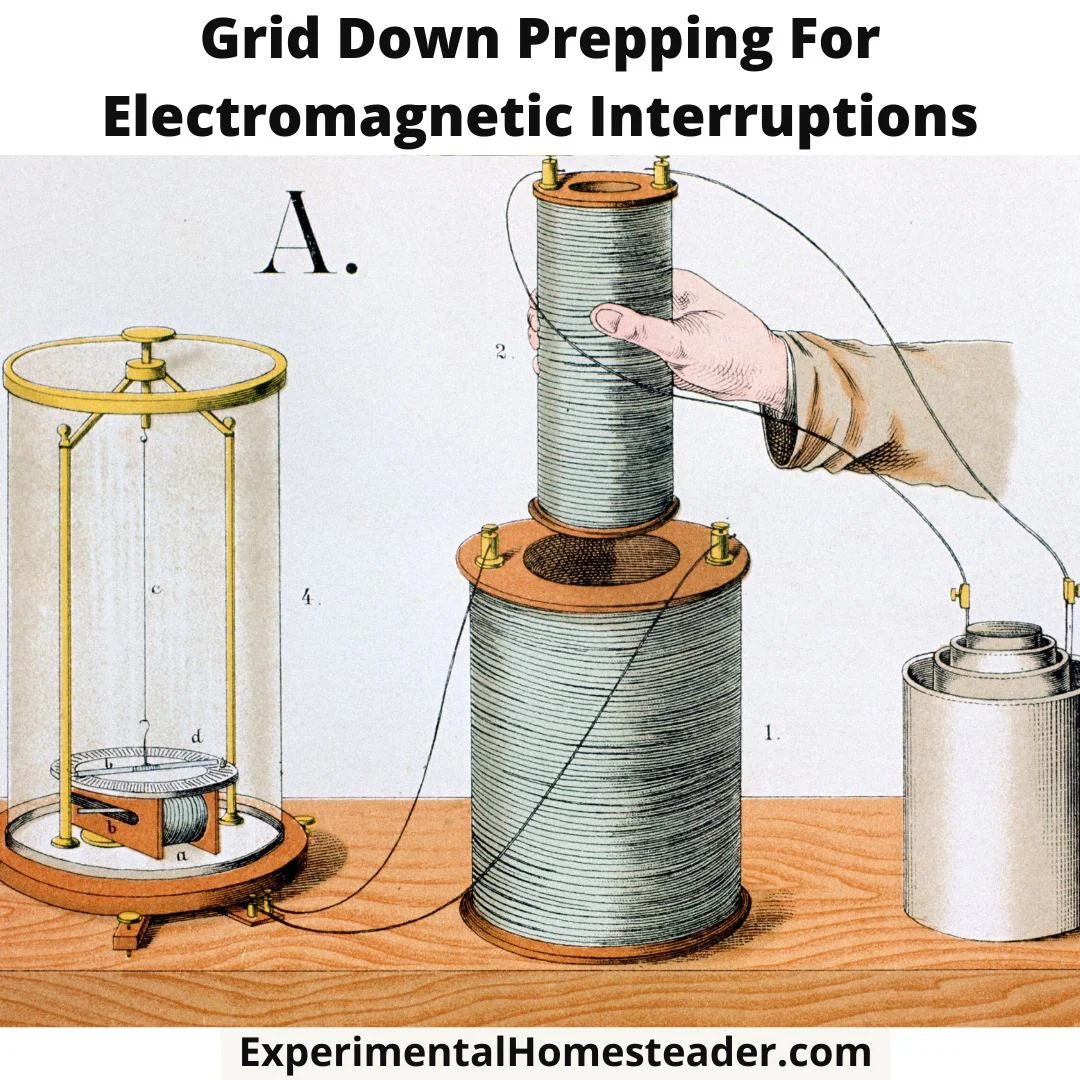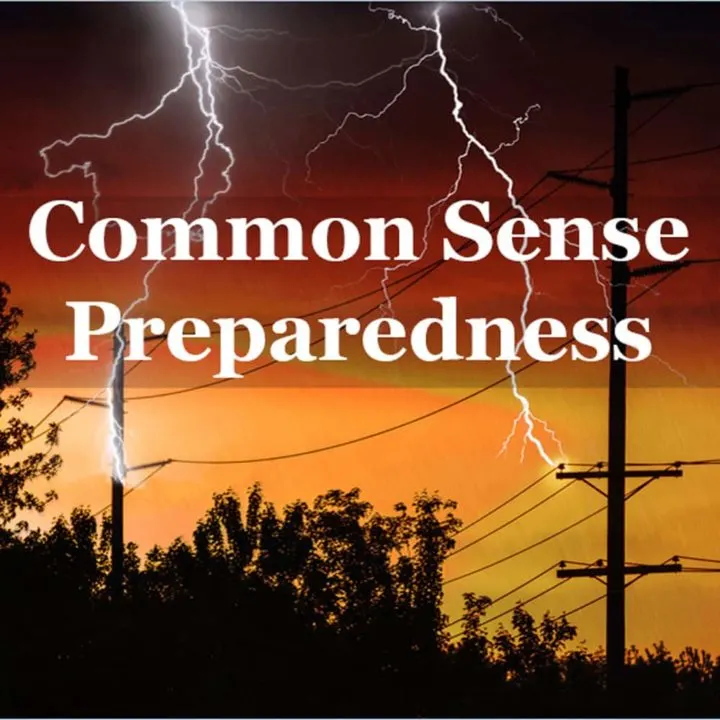When a disaster evacuation occurs, there is often a fuel shortage and many people are unprepared to deal with this situation.
While electrical outages, food and water shortages are common enough that we have learned to adapt to them, many of us have never had to consider the risk of a fuel shortage - that is until recently.
Fuel shortages are common in other parts of the world and as we have recently seen they also affect the United States when a mandatory evacuation or natural disaster happens.

Are you interested in the Preparing For Shortages eBook but don't want to sign up for our email list? You can purchase it from our Etsy Store.
Things That Can Cause A Fuel Shortage Include:
- Disputes between fuel providers and their suppliers or employees.
- A long term, large scale electrical shortage causing the shutdown of gas stations.
- The slow reduction in fossil fuels creating physical, financial, or legal restrictions which will stop us using fuel.
- Natural disasters.
In these situations, it is vital to be prepared well in advance so you are not caught without fuel.
A lack of fuel can cause severe problems for people living in areas that are affected by a natural disaster.
Fewer gas stations are able to operate during these events, causing panic and desperation for those seeking refueling options especially if they are trying to get away from the situation.
Fuel shortages are one of the most common occurrences when natural disasters occur because they are so difficult to prevent or prepare for.
Here Is How To Prepare For A Fuel Shortage
When you are suddenly facing a fuel shortage, one of the first things to consider is how you will get around.
This is especially important if you live in an area that is prone to hurricanes, where driving can often be unsafe due to flooding.
If you are unable to drive or if gasoline becomes unavailable, your best bet may be a bicycle.
Bicycles have many advantages over cars and other vehicles when it comes to fuel shortages.
They are cheaper and easier to maintain than cars and can be quickly fixed on the go with a screwdriver or wrench.
They don't require as much space as motorcycles, so they can fit on sidewalks more easily than those two-wheeled vehicles and bicycles store well in areas where space is limited, making them easy to keep on hand during a disaster scenario.
You can carry a bicycle in your vehicle just in case you run out of gas so you can at least get to a safe place.
Other options include:
- If a fuel shortage looks like it will affect you for more than a few days, figure out how to use less fuel so you can conserve what you have on hand.
- If you live far away from town consider purchasing a month or more of groceries and focusing on frozen, freezable, or canned goods, to minimize shopping trips.
- If you live in an urban setting, walk or ride a bicycle to shop even though this means you will have to shop more frequently - or take a wagon or stroller with you so you have a way to transport the groceries you buy.
- Consider working from home if at all possible, or condensing your work days so you have to travel less.
- Carpooling and public transport are other potential ways of getting where you need to go in the event of a fuel shortage.
Have A Low-Fuel Or Fuel-Free Transportation Alternative Ready
If you really need to get around but your regular vehicle uses a lot of fuel, consider keeping an alternative vehicle which uses less fuel or keep some gas on hand safely stored in proper containers.
What your alternative vehicle is will depend on where you live and what you can afford.
If you live in the city and are close to the places you need to get, a bicycle is a good choice.
But if you live far out in the country and need to cover greater distances, a low-fuel motorbike or scooter could be a life-changer.
Some people who live rurally will also benefit from using horses, donkeys or cattle for travel.
If you don't have your own livestock, make arrangements with someone who does in case you need emergency fuel-free transportation.
Keep A Stockpile Of Fuel On Hand
This is a very clever idea, but many people get it wrong.
The common mistake is to a bicycle is a good choice, fill them, and stash them away long term.
Petrol or diesel in a gas can in your garage only has a healthy life of three to six months before it becomes useless.
If you intend on keeping a stockpile, fill up your gas cans with 4 month’s worth of regular fuel use and cycle them.
That means keeping a date sticker on them, when your fuel is low topping up from the oldest can, and filling a new one.
This cannot be done as effectively with more sensitive engines, though, as it can wear them down.
Keep Your Gas Tanks Full
A simple way to make sure you are ready for a brief fuel shortage is just to keep your vehicle's topped up.
Again, you rarely get much warning when a fuel shortage hits, it is generally well into it that most people find out, and by then it is too late to fuel up.
By never letting your tank drop below half full you can make sure you have enough to keep you moving if there is a brief fuel shortage.
This could make the difference between getting things done and not getting things done in a fuel shortage, or between running out of fuel fast and having enough fuel to get you to an area where the gas pumps work again.
While some might think keeping a filled gan can in your vehicle is a good idea just in case you can't make it to the gas station, do not do this!
Gas cans release fumes, not to mention how flamable gas is and you never know when an accident might happen.
Have An Alternative Heating Option For Your Home
Finally, if your home uses gas, petrol, or diesel to run your heating, then you will need to have a few alternative options.
A simple metal stove which burns coal or a wood burning stove that has a chute to direct smoke out the window, and warms up the room quickly, could be a literal life saver if you need fuel to heat your home.
Be sure to have a stockpile of wood or coal as well as an ax to cut up wood in the event you need more.
Never burn green wood.
A woods or other natural area is a great place to find large branches that have been down for some time and are safe to burn.
Be sure the wood you choose is dry.
While electric heaters are great, keep in mind that chooing an alternative heating option that does not rely on the grid really is your best option.
Emergency Planning And Preparedness Tips
The Importance Of Taking Survival Preparedness Seriously
Survival preparedness needs to be taken seriously because you never know when a natural disaster or a man-made catastrophe might happen. A disaster can occur when you least expect it, and this is why it is extremely important to be well-prepared before you are caught off-guard.
Prepper Water Storage Tips And Ideas
Check out these prepper water storage tips and ideas to learn the options for storing water or having access to clean water should you need to bug out.
How To Stay Warm In Winter If The Power Goes Out
Power outages happen. The key is to be prepared ahead of time so you can stay warm in winter if the power goes out or the grid goes down.
Planning Your Family Survival Camp
Family survival camps are an essential part of wilderness survival. Don't wait for shtf before you make a plan and gather survival gear.
Emergency Survival Tips for Single Mothers
Learn how to start preparing for a potential crisis situation by following these emergency survival tips for single mothers.
Tips For Prepping For Survival On A Budget - Experimental Homesteader
Prepping for survival on a tight budget is possible. The first step is to prepare your emergency readiness plan so you know what supplies you need.
How To Start Prepping On A Budget With Groupon Coupons
Learn how to start prepping on a budget and get those basic homesteading supplies plus the gift items you need using Groupon Coupons.
How To Survive During Economic and Political Chaos
Learn how to survive during economic and political chaos. Having a plan in place to keep you and your family safe is essential.
Survival Grocery List - First Month
Find out where to start your survival grocery list. The first month lays the ground work for basic survival needs and your emergency survival food list.
Food Security Preparedness - What To Do Before Disaster Strikes
Learn what food security preparedness skills you need to survive any natural or man-made disaster, and why you should grow your own food.
How To Plan For Survival Emergency Preparedness Situations
These fifteen critical survival scenarios are exactly the reason you need to plan for survival emergency preparedness situations today.
Are You Ready To Start Becoming A Survivialist?
Becoming a survivalist is a lifestyle and mindset change. You must consider the pros and cons of prepping for survival because it does require commitment.
10 Essential Prepper Supplies For Home Remedies
Emergencies such as natural distasters are happening at an alarming rate these days. Be prepared by stocking up on these supplies for home remedies.
9 Tips To Stay Safe During The Human Coronavirus Outbreak
These 9 coronavirus outbreak safety tips are sure to help keep you and your family safe during this rapidly spreading pandemic.
4 Questions To Ask During A Health Disaster
There seems to be a new health disaster every year! Find out what 4 questions to ask during a health diaster to keep your family safe.
9 Quick Pointers To Reduce Your Risk Of Infectious Diseases
Follow these nine quick pointers to help reduce your risk of infectious diseases, including those that are on their way to becoming a pandemic.
Flu Prevention Tips
Learn about some simple flu prevention tips to help you and your family stay healthy this winter. Plus get the facts on just how serious the flu really is.
Safety Measures To Take When Self-Isolation is Not an Option
Learn what to do when self-isolation is not an option because the company you work for does not shut down or you are considered an essential worker.
Running Out Of Toilet Paper? You Need To Read This!
If you're like many people and running out of toilet paper because of the hoarding that is happening, here are some emergency alternatives to try.
Emergency Duct Tape Tire Repair
Have you ever been in an emergency situation where you needed to know how to fix a tire? Try this emergency duct tape tire repair solution!
Weapons To Include In Your Homesteading Self Sufficiency Survival Kit
Learn what weapons - both lethal and non-lethal - to include in your homesteading self sufficiency survival kit. Also learn why you need to include them.
Emergency Survival Tips For Escaping A Riot
Check out these emergency survival tips for escaping a riot! These tips also work well for other types of survival prepping plans.
Secure Your Home From Intruders And Prevent Break-Ins
Today is the day you need to secure your home from intruders. A secure home helps prevent break-ins and keeps your family safe.
Top Survival Tips And Strategies When Facing An Armed Shooter
Active shooter situations are very common these days. This is why understanding the top survival tips and strategies is so important. The more prepared you are and the calmer you are, the more likely you are to survive.
Child Safety Tips
The National Child Safety Council shares information on what child safety tips you need to teach children to keep them safe.
Learn What A Survival Pantry Is And Why You Need One
Create a survival pantry so you can avoid panic buying and feel secure knowing your family has the essentials no matter what emergency situation occurs.
How To Create Your Own Short-Term Emergency Preparedness Disaster Survival Kit
An important part of survival prepping is being ready for any situation - long or short-term. Start prepping today by creating your own short-term emergency disaster survival kit!
What To Pack In A Children's First Aid Disaster Survival Kit
Knowing what to pack in a children's first aid disaster survival kit is important, even if you don't have children. These kits are handy in emergencies.
How To Prepare For Civil Unrest So It Does Not Severely Impact You
Understanding how to prepare for civil unrest is extremely important. Escaping riots and violent demonstrations safely is one of the main reasons to prepare for civil unrest.
How To Prepare For Disaster Survival
Now is the time to learn how to prepare for disaster survival! Disaster prepping helps with everything from nuclear threats to natural disaster survival.
How To Avoid Becoming A Target In A SHTF Situation
Learn how to avoid becoming a target in a potential SHTF situation such as a natural disaster or other unexpected event, such as a pandemic.
Grid Down Prepping For Electromagnetic Interruptions
Grid down prepping for electromagnetic interruptions includes having the right survival gear and using it to protect your electronics.
Preparing for Everyday Emergencies
70+ preparedness articles to help you prepare for everyday emergencies - food and water, emergency power, cold weather, health, first aid and more.
Bloom! Make Gardening Part of your Preparedness Plan
Preparedness is a popular past time and serious concern for a large number of people. While food storage, water, emergency preparedness, and fuel are usually the focus. Have you thought about producing your own food?


